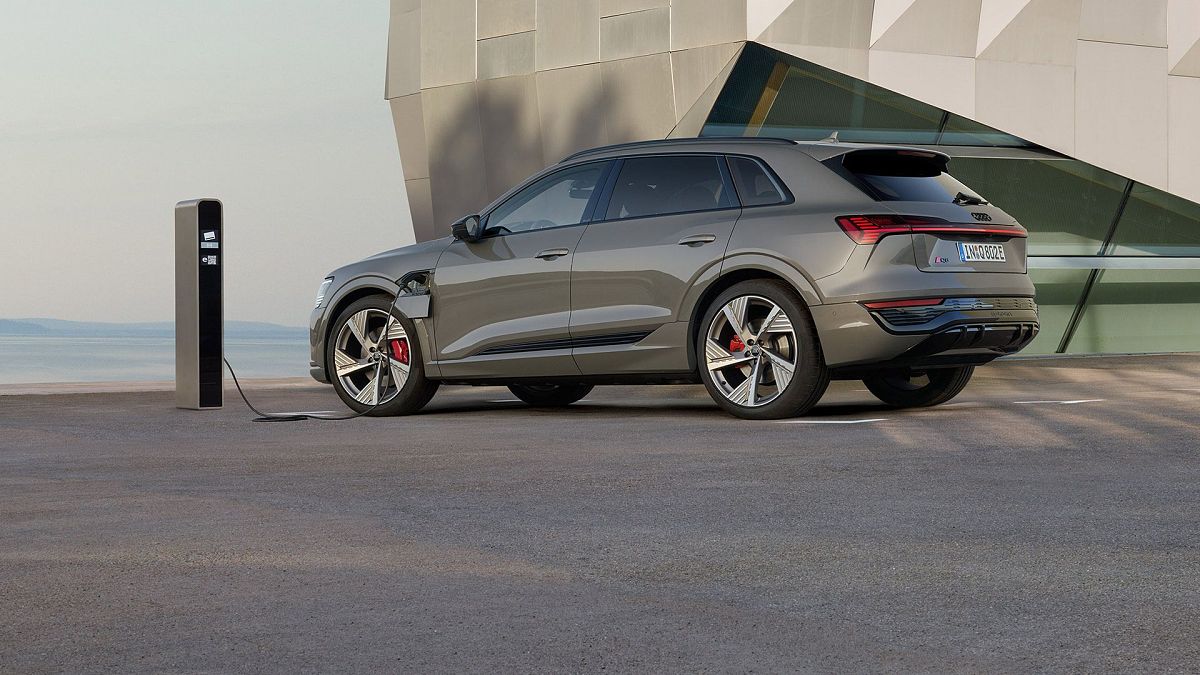The Audi plant in Brussels, Belgium, is facing challenges in the production of an 80,000 euro electric SUV, which is considered too expensive for the European market. The high production costs are leading Audi to consider relocating production to Mexico after 2025, causing concern among workers and unions. The plant, which has been operating since 1949 and employs 3,000 people, is now in the process of being sold due to the lack of viable proposals to continue production or convert it for other Volkswagen group models. The unions are demanding that the plant be sold to a buyer who will ensure job security for the workers.
The shift towards electric vehicles in Europe has been met with challenges, as manufacturers have focused on producing large and expensive models that are out of reach for the average consumer. The Q8 e-tron electric SUV, Audi’s flagship model built in Brussels, has a list price of around 80,000 Euros, making it unaffordable for many Europeans. This has led to overproduction in the European market, with electric cars accounting for only 12.6% of total car sales in the first eight months of 2024. The unions are criticizing the automotive industry for prioritizing profits over sustainability and are calling for more public funding to support the sector.
The Belgian unions are not advocating for a return to combustion engine vehicles but are seeking solutions to support the transition to electric vehicles while protecting jobs in the automotive sector. Discussions with MEPs from the European Socialists and Democrats group have highlighted the need for a more ambitious reindustrialization plan, including tariffs on cheaper Chinese electric cars and investment in research and development of new technologies. The aim is to encourage European and foreign companies to invest in the region and create quality jobs through tax incentives and worker training programs.
The closure of the Audi plant in Brussels reflects wider challenges facing the European automotive industry as it navigates the transition to electric vehicles. The focus on producing expensive models has limited market demand and led to overproduction, resulting in the closure of factories in Belgium and Germany. Unions are calling for a more sustainable approach that balances environmental concerns with job security, highlighting the need for government intervention to support the sector and ensure a just transition for workers.
The protests and strikes by unions in Belgium demonstrate the growing frustration among workers over the impact of the shift to electric vehicles on their jobs and livelihoods. The closure of the Audi plant in Brussels is a stark reminder of the challenges facing European car manufacturers as they navigate the transition to electric vehicles. The need for a comprehensive reindustrialization plan that supports workers and encourages investment in the sector is becoming increasingly urgent, as the European automotive industry grapples with the economic and social consequences of the shift to electric vehicles.
The future of the Audi plant in Brussels remains uncertain as discussions continue on the best path forward for the facility and its workers. The situation in Brussels is a microcosm of the broader challenges facing the European automotive industry as it seeks to balance the transition to electric vehicles with the need to protect jobs and ensure economic sustainability. With the support of government intervention and strategic planning, there is hope for a more sustainable future for the industry that benefits both workers and the environment.











